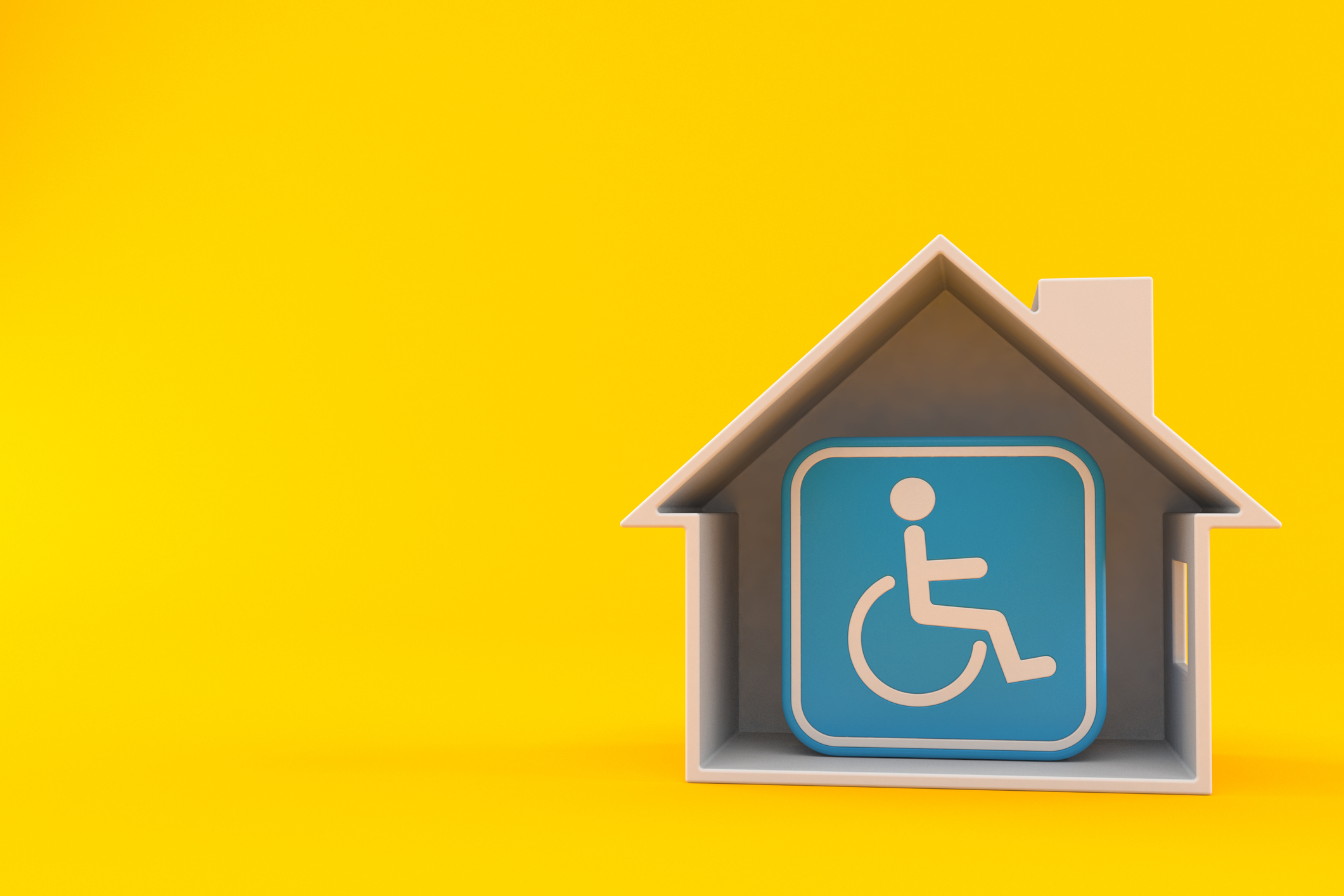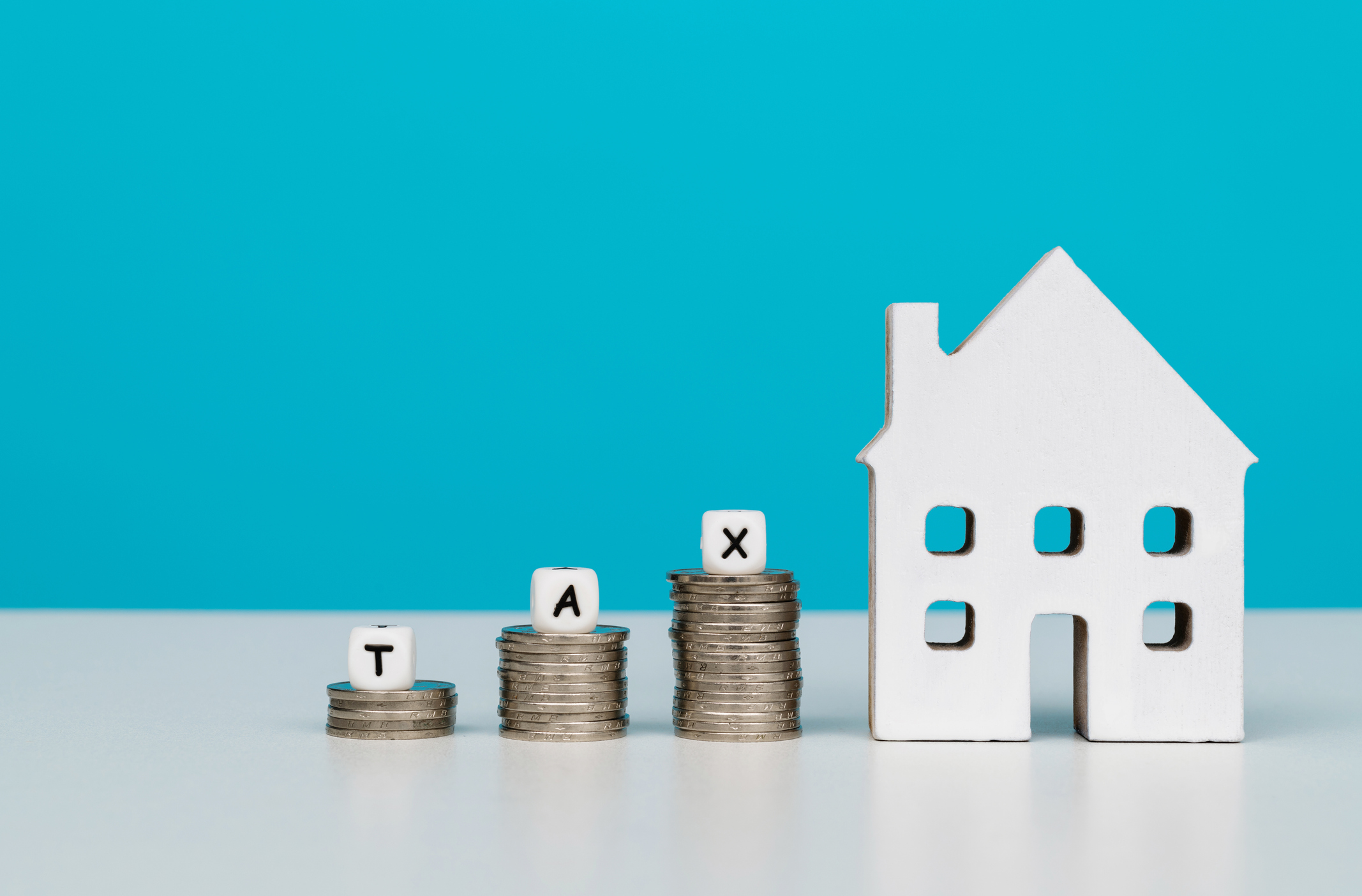Ten Tax Breaks for Homeowners and Homebuyers for 2025 Taxes
These real estate tax breaks can help homeowners get some money back, and some are expiring soon.


Profit and prosper with the best of Kiplinger's advice on investing, taxes, retirement, personal finance and much more. Delivered daily. Enter your email in the box and click Sign Me Up.
You are now subscribed
Your newsletter sign-up was successful
Want to add more newsletters?
Purchasing a home is often considered a significant life milestone, but in today’s housing market, becoming a homeowner can be challenging and expensive.
Last summer, reports showed that renting a home was cheaper than purchasing a property, with renters saving hundreds of dollars more a month than homebuyers. Unlike renters, homeowners face property taxes, mortgage interest, and other financial obligations that can increase their tax bill.
Fortunately, there are some tax breaks for homeowners (and homebuyers) that can make it a little more affordable.
But you'll have to act fast if you want to snag some of these credits. The Trump administration's recently enacted tax cuts and spending legislation, dubbed the "big beautiful bill," eliminates certain energy-efficient tax breaks, while making other credits for homeowners permanent.
While some of these tax breaks can be complex, and not everyone may be eligible for them, they can provide significant tax savings for those who are. Here's what you need to know.

401(k) or IRA loans to buy a home
To become a homeowner, you will need money for a down payment. If you have an IRA or a 401(k) account, you might be able to tap into those funds to help you buy a home.
Traditional IRA: Traditional IRA holders can withdraw up to $10,000 penalty-free for a first home purchase, construction, or rebuilding, even before age 59½. Married couples can each withdraw $10,000 from separate IRAs without penalty.
Roth IRA: You can withdraw Roth IRA contributions anytime, without incurring penalties or taxes under some circumstances. Earnings withdrawals are typically taxed and penalized unless used for a first-home down payment (up to $10,000) after the account has aged five years.
401(k): If you want to pull money out of a 401(k) account to put toward a down payment, you will have to borrow from the plan. You can typically take out a tax and penalty-free loan from your 401(k) plan for up to half of your balance (but not more than $50,000). However, there are some things you should know before you do.
- A 401(k) loan typically requires repayment within five years, but loans for a primary home may have extended terms. Interest applies.
- If you leave or lose your job, the loan must be repaid before your next tax return, or you'll face taxes on the unpaid balance and a potential 10% early withdrawal penalty.

Mortgage interest deduction
Homeowners can deduct mortgage interest on up to $750,000 of debt ($375,000 if married filing separately) when itemizing. This applies to funds used to purchase, construct, or substantially improve a primary or secondary home.
The Trump administration’s 2025 tax cuts and spending legislation make the mortgage interest deduction cap permanent. This deduction limit was initially set to expire after 2025 under the Tax Cuts and Jobs Act (TCJA) and revert to the previous $1 million cap.
Allowable mortgage interest tax deduction amounts differ for married taxpayers filing separately and for homes purchased before Dec. 16, 2017.
For now, if you’d like to deduct interest, your lender will send you a Form 1098 in January listing the mortgage interest you paid during the previous year. That's the amount you deduct on Schedule A (Form 1040).

Mortgage interest credit
There's also a mortgage interest tax credit available to homeowners with lower incomes who were issued a qualified Mortgage Credit Certificate (MCC) from a state or local government to subsidize the purchase of a primary home.
- The credit amount ranges from 10% to 50% of mortgage interest paid during the year. (The exact percentage is listed on the MCC issued to you.)
- The credit is limited to $2,000 if the credit rate is higher than 20%.
- However, if your allowable credit is reduced because of the limit, you can carry forward the unused portion of the credit to the next three years or until used, whichever comes first.
To claim the credit, complete Form 8396 and attach it to your 1040. You also need to report the credit amount on Schedule 3 (Form 1040).
Claiming the mortgage interest credit reduces your Schedule A mortgage interest deduction by the credit amount. Refinancing requires a new MCC, and the credit amount on the new loan may differ. Finally, if you sell your home within nine years, you may be required to pay some or all of the MCC benefit.

Don't miss out: credits for energy-saving home improvements
If you’re planning on adding energy-efficient improvements to your home, it's important to know that President Donald Trump's new tax cuts and spending legislation eliminate several clean energy credits.
For more information, see Kiplinger’s latest coverage: Homeowners Rush to Install Solar Panels Before Trump Cuts Tax Credits.
One tax break on the chopping block is the energy-efficient home improvement credit. As a non-refundable tax credit, taxpayers cannot receive any portion of the credit back as a tax refund. As mentioned, this year is your last chance to claim the credit for qualifying expenses:
- You can claim $1,200 for energy property costs and qualifying energy-efficient home improvements
- The annual credit amount is limited to $250 per door ($500 maximum), $600 for windows, and $150 for home energy audits.
- You can claim a credit of up to $2,000 per year for qualified heat pumps, biomass stoves or biomass boilers.

Credit for electric vehicle charging equipment is ending
You might know about the EV tax credit for the purchase of electric cars, but did you also know that there's a credit available for installing electric vehicle recharging equipment at your home?
The federal tax credit for EV chargers is worth 30% of the costs of the qualifying equipment, up to $1,000.
The EV charger tax credit also applies to "bidirectional" charging equipment, which allows you to charge an electric vehicle's battery or send electricity from the battery back to the electric grid.
Complete Form 8911 to calculate the credit, then claim it on Schedule 3 (Form 1040).
The Trump administration recently eliminated up to $7,500 federal tax credit for EV purchases. President Donald Trump also signed an executive order, “Unleashing American Energy,” which aims to dismantle the EV incentive and related policies. You may want to keep that in mind as you plan future purchases.
For more information: How the EV Tax Credit Works for 2025: Yes, It's Ending Soon.

Home renovations as medical tax deductions
You may qualify for a medical expense deduction if you install special equipment in or make modifications to your home for medical reasons. Here are some common examples of medically necessary upgrades to a home:
- Adding ramps
- Widening doorways
- Installing handrails
- Lowering cabinets
- Moving electrical outlets
- Installing lifts or elevators
Costs for the operation and upkeep of these upgrades are also deductible as medical expenses if the upgrade itself is medically necessary.
You have to itemize to claim the deduction, and you can only deduct medical expenses that exceed 7.5% of your adjusted gross income (AGI). The deduction is also reduced by any increase in the value of your property. So, for example, if you spend $50,000 to install an elevator, and that increases your home's value by $40,000, you can only deduct $10,000 ($50,000 – $40,000).
For a detailed list of home improvements you can deduct as medical expenses, see IRS Publication 502.
If you’re curious about what else you can deduct as medical expenses for long-term care, read: Deduct Expenses for Long-Term Care on Your Tax Return.

Property tax deduction
You might be able to deduct property taxes paid in 2024 on your federal income tax return. However, you must itemize to deduct real property taxes. These other types of taxes may be deductible, too.
- State income taxes
- Local income taxes
- Sales taxes
There's also a $10,000 limit ($5,000 if you're married but filing a separate return) on the combined amount deductible taxes, and not all property tax payments qualify.
Want to learn how to reduce your tax bill? See: How to Reduce Your Property Tax.

Forgiveness of debt on a foreclosure or short sale
In some cases, when a homeowner falls behind on mortgage payments, the lender may eventually reduce or eliminate the mortgage debt through a "short sale" or foreclosure.
When it comes to mortgage debt forgiven as part of a foreclosure or short sale, up to $750,000 of discharged debt on a principal residence may be tax-free ($375,000 if married filing separately). The Trump administration just made this permanent under its new tax cuts and spending legislation.
However, there are some exceptions.
- The exclusion only applies to a mortgage you took out to buy, build, or substantially improve your main home.
- The mortgage must also must be secured by your main home.
- Debt secured by your main home that you used to refinance a mortgage you took out to buy, build, or substantially improve your main home also counts, but only up to the amount of the old mortgage principal just before the refinancing.
You can't claim a tax break if the debt discharge is related to services you performed for the lender, or any other reason not directly linked to a decline in your home's value or your financial condition. The amount excluded reduces your cost basis in the home.

Capital gain exclusion when selling your home
You probably won't have to pay taxes on all or part of the gain from the sale. Your home is considered a capital asset. Normally, you have to pay capital gains tax when you sell a capital asset for a profit.
However, there is a capital gains tax exclusion for homeowners that can help. If you're married and file a joint return, you don't have to pay tax on up to $500,000 ($250,000 for single filers) of the gain from the sale of your home if all of the following apply:
- You owned the home for at least two of the past five years
- You lived in the home for at least two of the past five years
- You haven't used this exclusion to shelter gain from a home sale in the last two years
So, for example, if you bought your home five years ago for $600,000 and sold it for $700,000, you won't pay any tax on the $100,000 gain if all the exclusion requirements are satisfied. (Unfortunately, if you sold your home for a loss, you can't deduct the loss.) Any profit over the $500,000 or $250,000 exclusion amount is reported as capital gains on Schedule D.
If you don't meet all the requirements, you still might be able to exclude a portion of your home-sale profits if you had to sell your home because of a change in your workplace location, a health issue, a divorce, or some other unforeseen situation. The amount of your exclusion depends on how close you come to satisfying the ownership, live-in, and previous-use-of-exclusion requirements.
For more information on what’s taxable under capital gains read: Which Capital Gains Are Taxable and How to Calculate Your Tax

Increased basis when selling your home
If the capital gains tax exclusion doesn't eliminate your tax bill when you sell your home, you can still reduce the tax you owe by adjusting the basis of your home. Your taxable gain is equal to the sales price of your home minus the home's basis. So, the higher the basis, the lower the tax.
What you originally paid for the home is included in the basis. But you can also tack on various costs associated with the purchase and improvement of your home.
For example, you can include certain settlement fees and closing costs you paid when you bought the home. If you had the house built on land you owned, the basis includes the cost of the land, architect and contractor fees, building permit costs, utility connection charges, and related legal fees. The cost of additions and major home improvements can be added to the basis, too (but not basic repair and maintenance costs).
For more information see: Capital Gains Tax on Real Estate and Home Sales.
Related Content
Profit and prosper with the best of Kiplinger's advice on investing, taxes, retirement, personal finance and much more. Delivered daily. Enter your email in the box and click Sign Me Up.

Gabriella Cruz-Martínez is a finance journalist with 8 years of experience covering consumer debt, economic policy, and tax.
Gabriella’s work has also appeared in Yahoo Finance, Money Magazine, The Hyde Park Herald, and the Journal Gazette & Times-Courier.
As a reporter and journalist, she enjoys writing stories that empower people from diverse backgrounds about their finances, no matter their stage in life.
-
 4 High-End Experiences Worth the Splurge After 50
4 High-End Experiences Worth the Splurge After 50These curated date ideas provide the perfect backdrop for couples ready to enjoy the very best that the world has to offer.
-
 Health Care Stocks Have Sagged. Can You Bet on a Recovery?
Health Care Stocks Have Sagged. Can You Bet on a Recovery?The flagging health care sector has perked up a bit lately. Is it time to invest?
-
 Costco's Auto Program: Can Membership Pricing Really Save You Money on a Car?
Costco's Auto Program: Can Membership Pricing Really Save You Money on a Car?Costco's Auto Program can simplify the car-buying process with prearranged pricing and member perks. Here's what to know before you use it.
-
 2026 Tax Refund Delays: 5 States Where Your Money Is Stuck
2026 Tax Refund Delays: 5 States Where Your Money Is StuckState Tax From New York to Oregon, your state income tax refund could be delayed for weeks. Here's what to know.
-
 First the Penny, Now the Nickel? The New Math Behind Your Sales Tax and Total
First the Penny, Now the Nickel? The New Math Behind Your Sales Tax and TotalRounding Tax A new era of "Swedish rounding" hits U.S. registers soon. Learn why the nickel might be on the chopping block, and how to save money by choosing the right way to pay.
-
 Trump Tariffs Supreme Court Ruling: What's Next for Consumers and Retailers
Trump Tariffs Supreme Court Ruling: What's Next for Consumers and RetailersTax Law This landmark decision will reshape U.S. trade policy and could define the outer boundaries of presidential economic power for years to come.
-
 Over 65? Here's What the New $6K Senior Tax Deduction Means for Medicare IRMAA
Over 65? Here's What the New $6K Senior Tax Deduction Means for Medicare IRMAATax Breaks A new tax deduction for people over age 65 has some thinking about Medicare premiums and MAGI strategy.
-
 U.S. Congress to End Emergency Tax Bill Over $6,000 Senior Deduction and Tip, Overtime Tax Breaks in D.C.
U.S. Congress to End Emergency Tax Bill Over $6,000 Senior Deduction and Tip, Overtime Tax Breaks in D.C.Tax Law Here's how taxpayers can amend their already-filed income tax returns amid a potentially looming legal battle on Capitol Hill.
-
 How to Open Your Kid's $1,000 Trump Account
How to Open Your Kid's $1,000 Trump AccountTax Breaks Filing income taxes in 2026? You won't want to miss Form 4547 to claim a $1,000 Trump Account for your child.
-
 In Arkansas and Illinois, Groceries Just Got Cheaper, But Not By Much
In Arkansas and Illinois, Groceries Just Got Cheaper, But Not By MuchFood Prices Arkansas and Illinois are the most recent states to repeal sales tax on groceries. Will it really help shoppers with their food bills?
-
 7 Bad Tax Habits to Kick Right Now
7 Bad Tax Habits to Kick Right NowTax Tips Ditch these seven common habits to sidestep IRS red flags for a smoother, faster 2026 income tax filing.
